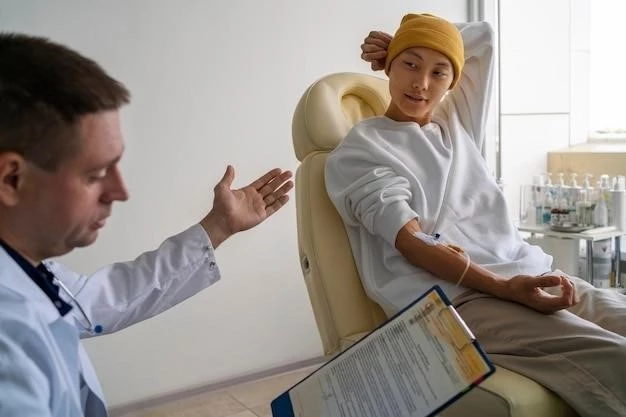Understanding Hittner–Hirsch–Kreh Syndrome
When it comes to Hittner–Hirsch–Kreh Syndrome, it’s crucial to comprehend the complexities of this genetic disorder․ The following sections will delve into symptoms, diagnosis, treatment options, and more to provide a comprehensive understanding․
Overview of Hittner–Hirsch–Kreh Syndrome
Hittner–Hirsch–Kreh Syndrome, a rare genetic disorder, manifests with a range of challenging symptoms affecting multiple systems in the body․ Individuals with this syndrome typically experience retinal dystrophy leading to progressive vision loss․ Additionally, brain abnormalities, developmental delay, joint stiffness, and often hearing loss are common features․ The syndrome is characterized by a syndromic form, meaning it presents as a cluster of symptoms that may vary in severity from person to person․
Understanding the complexities of Hittner–Hirsch–Kreh Syndrome is crucial for timely intervention and management․ Genetic testing plays a key role in diagnosing this condition, helping healthcare providers and families better comprehend the underlying genetic factors contributing to the syndrome․ With the guidance of medical professionals, including ophthalmologists, neurologists, and physical therapists, individuals with Hittner–Hirsch–Kreh Syndrome can explore treatment options and receive support tailored to their specific needs․
Understanding the Symptoms
Individuals with Hittner–Hirsch–Kreh Syndrome may present with a combination of symptoms affecting various aspects of their health․ Common symptoms include retinal dystrophy, leading to vision loss over time․ Brain abnormalities can manifest as developmental delays, cognitive impairments, or neurological issues․ Joint stiffness is frequently observed, impacting mobility and flexibility․
In addition, hearing loss is a prevalent symptom in some individuals with Hittner–Hirsch–Kreh Syndrome․ These symptoms often manifest early in childhood and progress over time, requiring multidisciplinary care from healthcare professionals․ It is essential for caregivers and medical providers to work together to address these symptoms effectively and enhance the quality of life for individuals with this genetic disorder․
Diagnosis and Genetic Testing
Diagnosing Hittner–Hirsch–Kreh Syndrome involves a thorough evaluation by healthcare professionals, including ophthalmologists, neurologists, and genetic specialists․ A comprehensive assessment of symptoms, medical history, and family history is essential in identifying this genetic disorder․ Genetic testing is a crucial step in confirming the diagnosis․
Through genetic testing, specific mutations or genetic variations associated with Hittner–Hirsch–Kreh Syndrome can be identified, enabling personalized care and management strategies․ This information not only confirms the diagnosis but also provides valuable insights into the progression and potential complications of the syndrome․ Collaborating with genetic counselors can help individuals and families understand the implications of the genetic test results and make informed decisions regarding their healthcare․
Treatment Options
When it comes to managing Hittner–Hirsch–Kreh Syndrome, a multidisciplinary approach is crucial․ Treatment focuses on addressing specific symptoms and improving quality of life for individuals with this genetic disorder․ Vision loss due to retinal dystrophy may benefit from low vision aids, adaptive technology, and regular eye exams by ophthalmologists․

Physical therapy can help manage joint stiffness and improve mobility, while cognitive and developmental interventions are essential for individuals with brain abnormalities and developmental delays․ Hearing loss may necessitate interventions such as hearing aids or cochlear implants․ It is important to work closely with a team of healthcare professionals, including neurologists, physical therapists, and specialists, to tailor treatment plans to the individual’s unique needs․
Managing Progressive Disease
As Hittner–Hirsch–Kreh Syndrome is a progressive genetic disorder, it is crucial to develop a long-term management plan to address the evolving needs of the individual․ Regular follow-ups with healthcare providers, including ophthalmologists, neurologists, and genetic specialists, are essential to monitor disease progression and adjust treatment strategies accordingly․
Early intervention and proactive management can help slow the progression of symptoms and improve overall quality of life․ Engaging in rehabilitative therapies, adaptive technologies, and educational support can enhance independence and wellbeing․ Caregivers and families play a vital role in providing ongoing support and advocating for the necessary services to help individuals with Hittner–Hirsch–Kreh Syndrome navigate the challenges associated with this condition․
Syndromic Form and Associated Conditions
Hittner–Hirsch–Kreh Syndrome presents as a syndromic form, meaning it involves a constellation of symptoms that impact various systems in the body․ Individuals with this syndrome may experience not only retinal dystrophy, brain abnormalities, developmental delay, and joint stiffness but also associated conditions such as hearing loss․
Understanding the syndromic nature of Hittner–Hirsch–Kreh Syndrome is crucial in providing comprehensive care that addresses the diverse needs of affected individuals․ Collaborating with healthcare providers specializing in different areas, such as ophthalmologists, neurologists, and physical therapists, can help in developing a holistic treatment approach tailored to the specific challenges presented by this genetic disorder․
